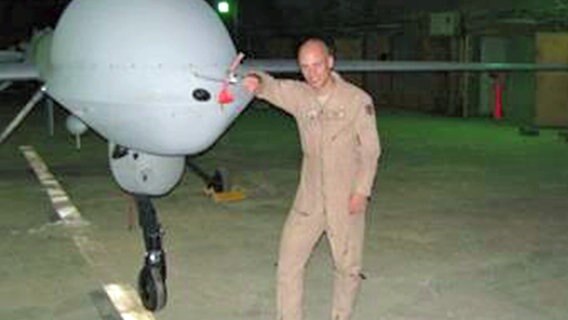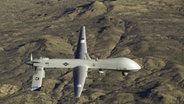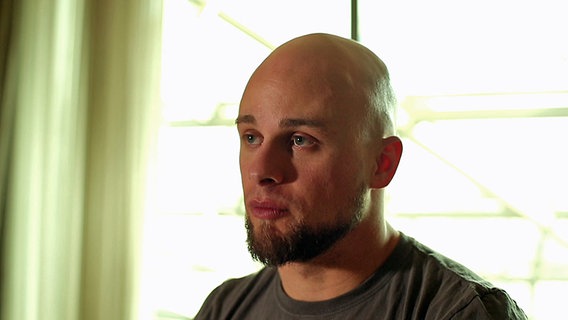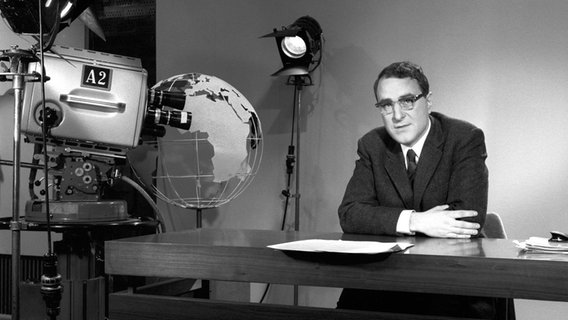Brandon Bryant: "Ramstein is absolutely essential"
Brandon Bryant is a former sensor operator for fighter drones. On Thursday he testifies before a German parliamentary inquiry committee about Germany's role in the US drone program and the importance of the US air base Ramstein which is located in Southwestern Germany.
Mr Bryant, Mr Bryant, you were a sensor operator for US Airforce fighter drones. You operated the drone's camera and its other instruments. How many hours experience have you got?
Brandon Bryant: "I got 6.000 hours experience flying drones. Roughly 120 hours of that were pure kinetic strikes. The remaining missions we mostly just loitered and watched. Sometimes we watched raids or other drones dropping ordinance on targets."
Where did you fly these missions?
Bryant: "These were in Iraq, in Afghanistan in Pakistan, in Somalia and in Yemen. So even in areas where we were not even at war officially."
The public perception is that drone operators wilfully kill people in far-away regions of the world in cold blood by simply pushing a button. Is that the case?
Bryant: "Drone operations involve a lot more personnel than people usually think. During a strike mission up to a hundred people will watch the drone's video feed. The pilot of the drone and the sensor operator are just the last links in the chain, the ones who fly the drone and pull the trigger. But they don't make the decisions."
Who gives your drone crew permission to fire?
Bryant: "That would be the JTAC - the Joint Terminal Attack Controller. He has the legal authority to order drone crews to drop ordinances and that is his sole job. He is not the one responsible for that operation, that's the battle commander, but the JTAC will give me permission to shoot."
So the JTAC has a clear picture of the situation on the ground?
Bryant: "Mostly, the JTAC is just looking at the same video feeds as us pilots and sensors. He just sits in front of a screen too. We had JTACs that were sitting in the US while the drone is thousands of miles away. They could be in the Pentagon. Some jerk looking at a laptop and be like, 'Oh, that’s a bad guy. Shoot him.'"
What's the name of the office the JTACs sit in?
Bryant: "There isn’t one. He could be anywhere. He could either be on the operations floor of an Air Operations Center or he could be with the guys on the ground. That’s the power of the JTAC, they could be anywhere. I think that’s part of the strength of the secrecy of the program. It’s fragmented."
So the JTAC could green-light weapons engagement from anywhere in the world, even Germany?
Bryant: "Of course. The JTAC could possibly be in Ramstein."
Which role do US facilities in Germany, especially Ramstein, play in US drone operations?
Bryant: "Ramstein is absolutely essential to the US drone program. All information and data go through Ramstein. Everything. For the whole world. Also for the CIA operations."
Why Ramstein?
Bryant: "Ramstein is ideally located. The video feed and the control feed of the drone travel via satellite to Ramstein since there is no decent fiberoptics connectivity into most warzones. From Ramstein the signals travel via fibreoptics cable to the US."
How do you know that the signals of your drones went through Ramstein?
Bryant: "Because before we could establish a link from our ground control station in the United States to the drone, we literally would have to call Ramstein up and say 'Hey, can you connect us to this satellite feed?' We would just pick up the phone and press the button and it automatically dials in to Ramstein."
The public debate about drones often differentiates between legal drone operations by the military and illegal ones by the CIA. Is that distinction justified?
Bryant: "Not really. This is going to surprise you: Military members fly all secret service missions like the ones of the CIA. Even in Pakistan and Somalia where the US officially don't even have a drone program."
So the CIA relies on the drones of the Air Force?
Bryant: "Yes. When it comes to strikes in a unofficial war zone like Pakistan, the CIA tries to limit the number of people involved. They would sometimes fly an additional drone, say a reaper or a predator, in that area, just in case we found something. The CIA would send a message that said 'Please stow your eyes'. That meant to turn our camera towards the body of the drone which means we couldn’t see anything."
You are the sensor operator, so you are the eyes of the drone. What happens when you disagree with the JTAC over what is happening on the ground?
Bryant: "Typically we don’t ask the JTAC or anyone in the chain of command any questions. They will be like, 'Do you have any questions?' And that’s the only moment when we are viable to ask questions. But typically if you ask questions they’re like 'God dammit, we’re trying to get this shit done, why are you fucking asking us questions?'"
So can you question orders?
Bryant: "Theoretically you can. We have it set up so you can say 'I don’t want to, I don’t feel comfortable.' But you’re still going to get a lot of shit. And they’ll be like 'Oh, you don’t feel fucking comfortable? What are you, a fucking pussy? You’re a fucking coward.' They will peer pressure the shit out of you."
Did you ever question orders?
Bryant: "Sometimes. I asked a lot of questions and no one wanted to hear my shit."
Why did you leave the drone program and the Air Force?
Bryant: "I was frustrated anyway about how our superiors were treating me and my peers. We were supposed to function and never ask questions. Then there was this moment while we were hunting for Anwar al-Awlaki, an American citizen. I suddenly realized that by doing what I was doing I was going against the American Constitution which I had sworn to protect. That was when I decided I had to get out."
Why do you go to all the trouble to come to Germany to testify before the parliamentary inquiry committee?
Bryant: "The US pretended the whole time to be Germany's ally but there were just using Germany. I want to represent something good which justifies Germany's trust in my country. I want to show that there is another way."





